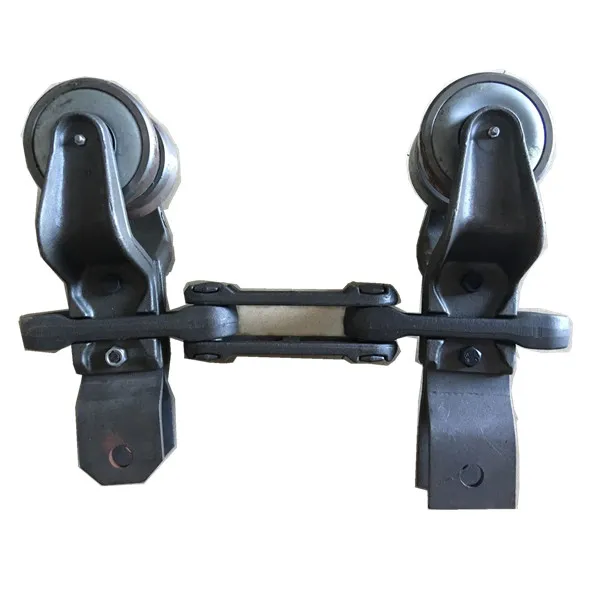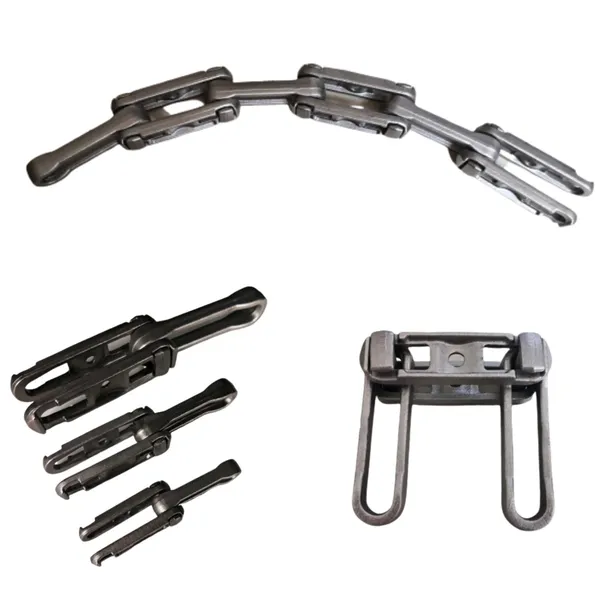Product Description
Plastic Conveyor Chain Table Top Flat Industrial Plate Chains Nylon Standard Good Price Selling High Quanlity Transmission Suppler Metric Chains Chain
Product Description
Engineered for a wide range of conveyor applications for many industries
Straight-running and side-flexing options for ease of installation, reduced floor space
Accommodate unique application environments with innovative surface options
Narrow TableTop Chain widths for multiple-strand and variable-speed conveyors
Continuous conveying surface for greater-width-requirement MatTop Chain applications
Assembled-to-width MatTop Chain configurations for custom sizes
Reduce container tipping and jams at transfer points
TableTop Chain for high-strength and high-speed applications
Plastic conveyor chains have the following features and advantages:
-
Lightweight: One of the key features of plastic conveyor chains is their lightweight construction. Compared to metal chains, plastic chains offer a significant weight reduction, which can be advantageous in applications where weight is a concern, such as in conveyor systems or portable equipment.
-
Corrosion Resistance: Plastic conveyor chains are highly resistant to corrosion. They do not rust or corrode when exposed to moisture, chemicals, or other corrosive substances. This makes them suitable for applications in wet or corrosive environments, including food processing, pharmaceuticals, and chemical industries.
-
Low Friction: Plastic chains have a low coefficient of friction, which allows for smooth and efficient operation. This feature reduces the power consumption and wear on the chain and associated components, resulting in improved energy efficiency and extended chain life.
-
Quiet Operation: Plastic conveyor chains offer quiet operation due to their inherent dampening properties. They generate less noise compared to metal chains, making them suitable for applications where noise reduction is important, such as in packaging lines or cleanroom environments.
-
Easy Maintenance: Plastic conveyor chains require minimal maintenance. They do not require lubrication, as plastic materials have inherent self-lubricating properties. This reduces maintenance costs and simplifies the overall maintenance process.
-
Clean and Hygienic: Plastic chains are non-porous and easy to clean, which makes them suitable for applications where cleanliness and hygiene are critical. They do not absorb contaminants or CHINAMFG bacteria, making them ideal for use in food processing, pharmaceutical, and medical industries.
-
Design Flexibility: Plastic conveyor chains offer design flexibility, as they can be molded into various shapes and sizes to meet specific application requirements. They can be customized with different chain configurations, attachments, and accessories for specialized applications.
-
Chemical Resistance: Plastic chains are resistant to a wide range of chemicals, including acids, alkalis, solvents, and cleaning agents. This chemical resistance allows them to withstand exposure to various substances without degradation, expanding their application possibilities.
-
Cost-Effective: Plastic conveyor chains are often more cost-effective compared to metal chains. They offer a good balance between performance and affordability, making them a cost-effective solution for applications where the benefits of plastic outweigh the requirements of metal chains.
In summary, plastic conveyor chains offer lightweight construction, corrosion resistance, low friction, quiet operation, easy maintenance, cleanliness, design flexibility, chemical resistance, and cost-effectiveness. These features make them suitable for a wide range of applications, particularly in industries that require clean, efficient, and reliable conveyor systems.
/* January 22, 2571 19:08:37 */!function(){function s(e,r){var a,o={};try{e&&e.split(“,”).forEach(function(e,t){e&&(a=e.match(/(.*?):(.*)$/))&&1
| Usage: | Transmission Chain |
|---|---|
| Material: | Plastic |
| Surface Treatment: | – |
| Feature: | – |
| Chain Size: | – |
| Structure: | Top Chain |
| Samples: |
US$ 9999/Piece
1 Piece(Min.Order) | |
|---|

How do you calculate the required horsepower for a conveyor chain drive?
The calculation of required horsepower for a conveyor chain drive involves considering various factors related to the conveyor system and the specific application. Here is a step-by-step process:
1. Determine the Total Resistance:
– Calculate the total resistance that the conveyor chain needs to overcome during operation. This includes the resistance due to the load being conveyed, frictional losses, elevation changes, and any other resistances in the system.
2. Convert the Resistance to Equivalent Inertia:
– Convert the total resistance to an equivalent inertia by multiplying it by the square of the chain speed.
3. Calculate the Total Inertia:
– Determine the total inertia of the system by considering the inertia of all the rotating components, such as the conveyor chain, sprockets, and any other driven elements.
4. Determine the Required Torque:
– Calculate the required torque by multiplying the total inertia by the desired acceleration or deceleration rate.
5. Convert Torque to Horsepower:
– Convert the required torque to horsepower by dividing it by the motor speed (in RPM) and multiplying by a conversion factor.
6. Consider Safety Factors and Efficiency:
– Apply safety factors to the calculated horsepower to account for variations, contingencies, and future growth.
– Consider the efficiency of the drive system, including the motor, gearbox, and other transmission components, to ensure accurate power transmission.
It’s important to note that the above calculation method provides an estimate of the required horsepower. Consulting with conveyor system manufacturers, engineers, or industry-specific guidelines is recommended for precise calculations and to ensure the selected conveyor chain drive meets the application requirements.

How does lubrication affect the performance of a conveyor chain?
Lubrication plays a crucial role in the performance and longevity of a conveyor chain. Proper lubrication helps to reduce friction, wear, and heat generation, ensuring smooth operation and minimizing the risk of premature failure. Here’s how lubrication affects the performance of a conveyor chain:
1. Friction Reduction: Lubrication forms a thin film between the chain components, reducing friction between metal surfaces. This reduces the energy required for operation, minimizes heat generation, and prevents excessive wear and tear.
2. Wear Prevention: Lubrication forms a protective layer on the chain components, preventing direct metal-to-metal contact. This helps to reduce wear and extend the service life of the chain.
3. Corrosion Protection: Lubricants often contain anti-corrosion additives that protect the chain from rust and oxidation. This is particularly important in environments with high humidity or exposure to corrosive substances.
4. Noise Reduction: Proper lubrication reduces the noise generated during chain operation by minimizing friction and metal-to-metal contact. This can contribute to a quieter and more comfortable working environment.
5. Temperature Control: Lubrication helps to dissipate heat generated during chain operation, preventing excessive temperature rise. This is crucial in high-speed or heavy-duty applications where heat can lead to accelerated wear and reduced chain performance.
6. Maintenance and Service Life: Regular lubrication and proper lubricant selection are essential for maintaining the chain’s performance and extending its service life. Adequate lubrication reduces the need for frequent maintenance, minimizes downtime, and lowers overall operating costs.
It’s important to follow the manufacturer’s recommendations for lubrication frequency and use the appropriate lubricant for the conveyor chain. Regular inspections and maintenance checks should also be conducted to ensure proper lubrication levels and address any issues promptly. Proper lubrication practices will enhance the performance, reliability, and durability of the conveyor chain system.

How does a conveyor chain compare to other types of conveyor systems?
Conveyor chains are one of the common types of conveyor systems used in various industries. They offer specific advantages and characteristics that differentiate them from other types of conveyor systems.
1. Versatility: Conveyor chains are highly versatile and can be used for a wide range of applications, including horizontal, inclined, and vertical conveying. They can handle various types of materials, from bulk solids to individual items.
2. High Load Capacity: Conveyor chains are known for their high load-carrying capacity. They are designed to handle heavy loads and can be used in applications where other conveyor systems may not be suitable.
3. Durability: Conveyor chains are built to withstand harsh operating conditions and heavy-duty use. They are made from strong and durable materials, such as steel or alloy, that can withstand abrasion, impact, and wear.
4. Flexibility: Conveyor chains offer flexibility in terms of layout and design. They can be configured to accommodate complex conveyor paths, curves, and multiple discharge points, allowing for efficient material flow and system customization.
5. Cost-Effective: Conveyor chains often provide a cost-effective solution for material handling compared to other conveyor systems. They have a relatively low initial cost, require less maintenance, and have a longer service life.
However, it’s important to note that conveyor chains may not be suitable for every application. Other types of conveyor systems, such as belt conveyors, screw conveyors, or pneumatic conveyors, may offer specific advantages depending on the application requirements, material characteristics, or environmental factors.
Ultimately, the selection of the appropriate conveyor system depends on factors such as load capacity, material properties, layout constraints, cost considerations, and specific application needs.


editor by CX 2024-05-03
